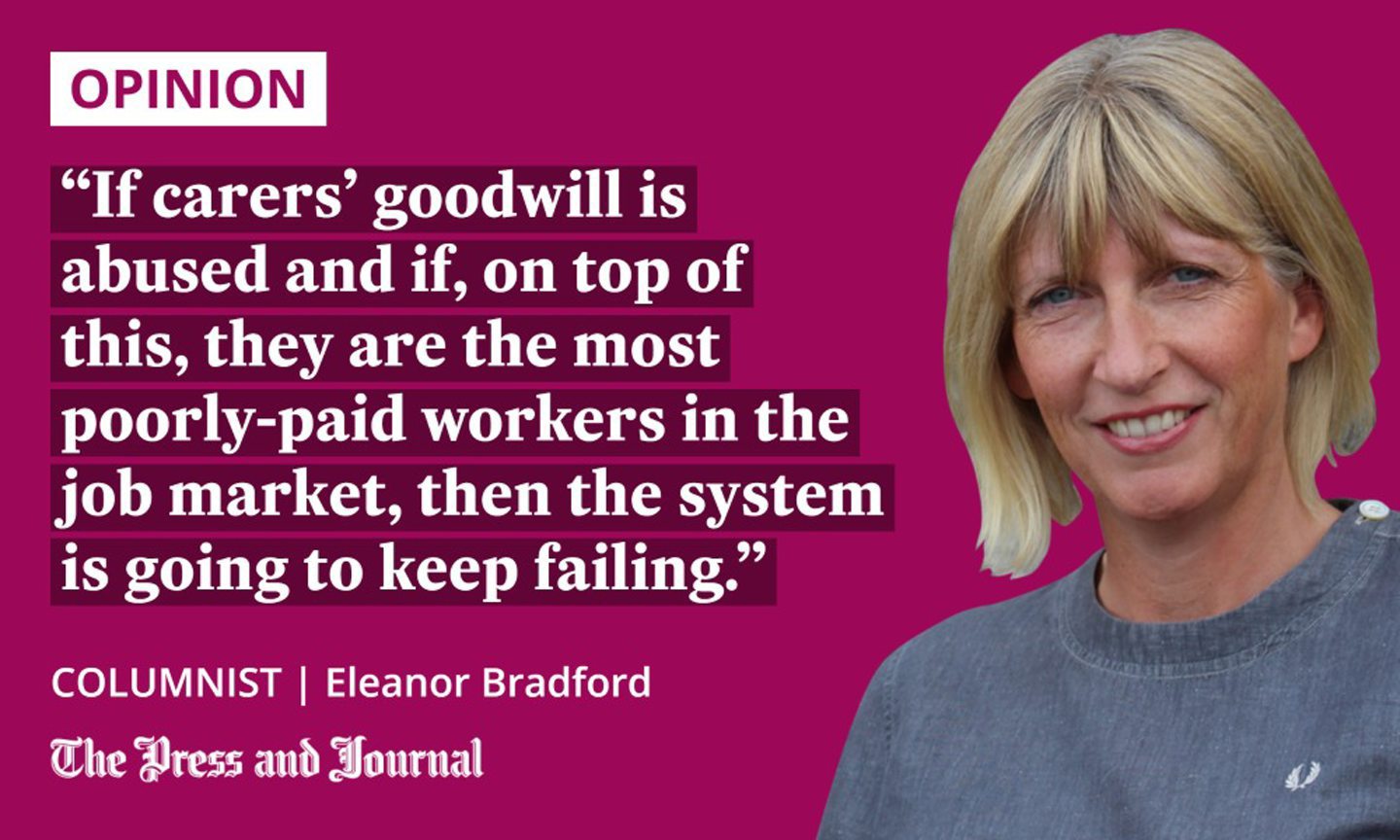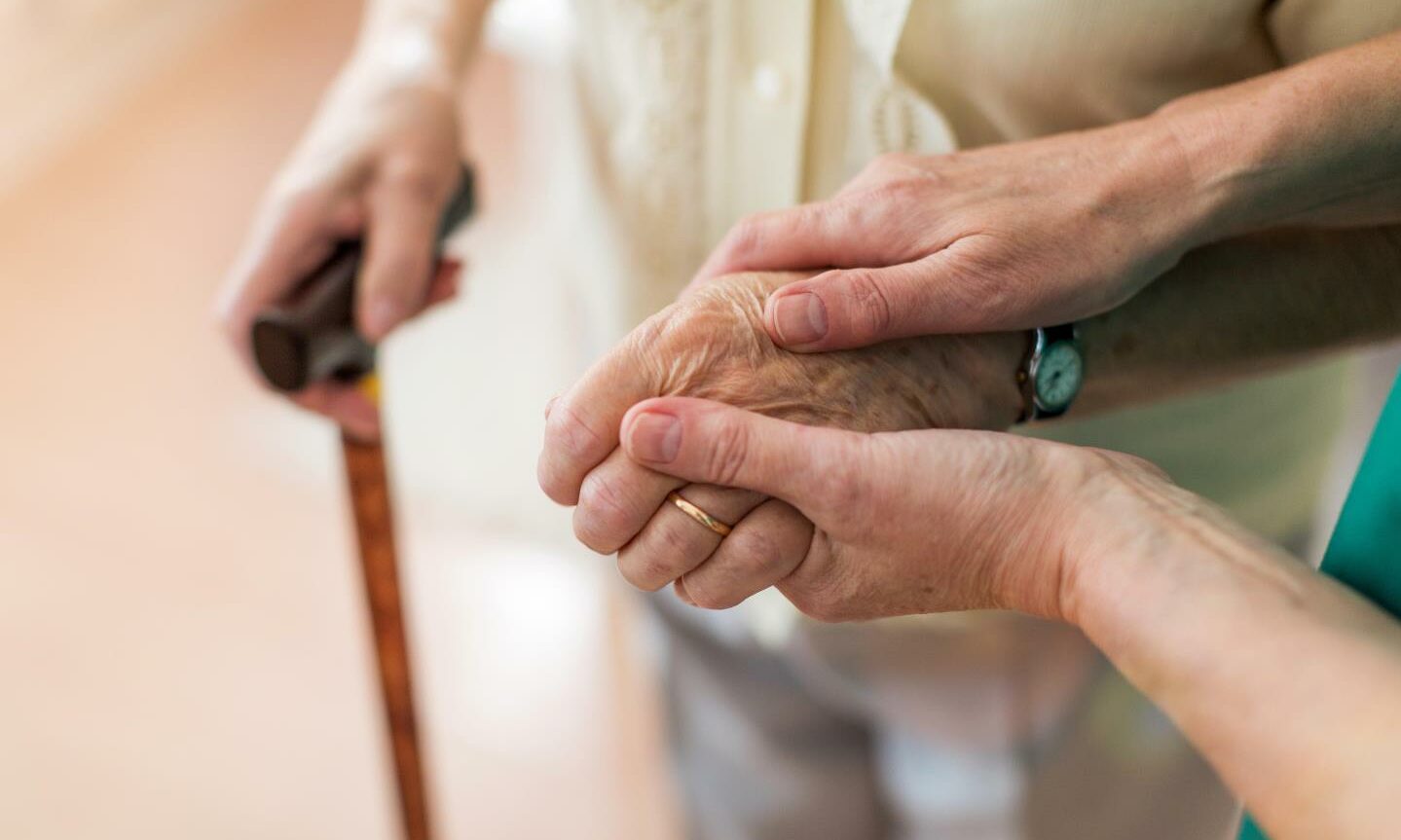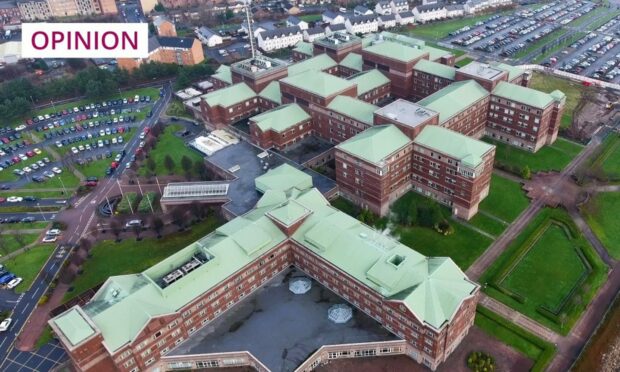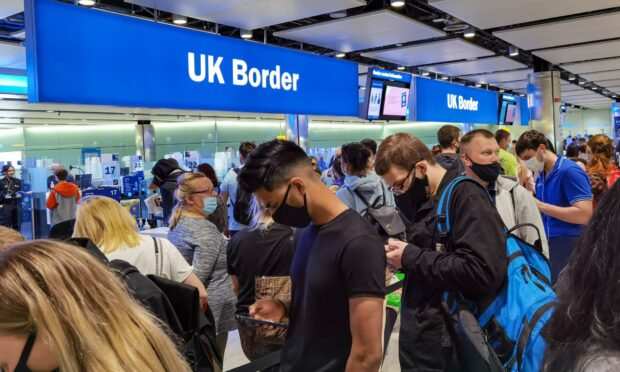The jobs market is buoyant at the moment, with the number of vacancies outstripping the number of unemployed for the first time since records began.
As a result, employers are finding jobs at the bottom end of the pay scale harder to fill.
This is good news for those workers in the lowest paid roles, who now have many more options open to them, but not such good news for the most vulnerable in society who depend on the care sector, which has been propped up by dedicated staff on low pay for too long.

In Scotland, there is a young man with learning difficulties whose elderly mother and main carer recently died. He is now permanently living in a short-stay care home for adults with learning disabilities. This was supposed to be temporary, but there are no staff to support him living independently, as he used to.
Due to staff shortages, there is nobody to look after him at weekends on a regular basis, so the carers who have already looked after him all week give up their weekends to come and care for him. They know that if they don’t, he’ll be sat in his room all weekend.
His appearance has gone from neat and tidy to dishevelled, in a radical transformation that would have his mother turning in her grave. Somebody noticed that he had a bad tooth and referred this to his carers. He didn’t see a dentist for five months.
His mum would have had him in the dentist’s chair the next day, camping outside if necessary until he got an appointment!
Staff shortages have now meant that, due to a Covid outbreak, his care home has closed its doors and other families can’t get respite care at all until it reopens.
Offering respite care can be costly
For the past couple of years, our family has offered respite foster care: a bit of time off to those who look after foster children. Some of those carers would otherwise look after children with a high level of need 24/7, 365 days a year. But, it often worked out at less than £1.30 per hour between us.
We were paid per overnight stay, but carers often wanted respite from Saturday morning to Sunday evening, meaning only one payment for us for the entire weekend. And, that hourly rate doesn’t even include the time when we were asleep but still on duty, always available if a child had a nightmare.
We were not respite foster carers for the money; we were happy to give other foster carers and kinship carers a break
In fact, we found that being respite foster carers actually cost us money. We usually took the children for a day out because, as any parent knows, you’ve only got a window of a few hours at home before they start bouncing off the walls. That could not be claimed on expenses.
We had to take time off work for medical assessments and annual home safety checks. Any changes we needed to make to our home, such as fencing off a pond or adding safety catches to cupboards, were also at our own expense.
We were not respite foster carers for the money; we were happy to give other foster carers and kinship carers a break because, as adoptive parents ourselves, we knew all too well how hard it was to look after traumatised children.
System must value carers more
We enjoyed the chaos of young people turning our lives upside down for a weekend, and it was good for our adopted children to help to care for other children whose needs were greater than their own.
But, with great sadness, we have just resigned. Ultimately we stopped fostering not because of the lack of money, but because of a lack of faith in the whole care system.
A recent review of children’s care in England concluded that the system needs radical reform to help families before they reach crisis point. The review pointed out that one of the major problems is a severe shortage of foster carers, including respite foster carers. The report was published a few days before my partner and I resigned, and we know from bitter experience that the situation is exactly the same in Scotland.
I spoke in Parliament yesterday about the crisis in foster care recruitment – thousands of children are being denied a loving home.
BAME children are particularly affected, with 66% of councils reporting a shortage of BAME foster carers.
The Government must act to address this. pic.twitter.com/I7Dyc6NyJo
— Tulip Siddiq (@TulipSiddiq) April 22, 2022
I have talked in previous columns about research on happiness and how feeling worthwhile is key to life satisfaction. There are few jobs more worthwhile and rewarding than the care sector. But, if carers’ goodwill is abused and if, on top of this, they are the most poorly-paid workers in the job market, then the system is going to keep failing. There will be repeated disasters and inquiries.
We have a care sector which claims to put the vulnerable first but, unless it invests in the people who are caring for those vulnerable individuals, this ambition will never be achieved.
They’ll find another job which recognises their value, and the care system will continue to lurch from crisis to crisis.
Eleanor Bradford is a former BBC Scotland health correspondent and now works in communications in the education sector

















Conversation